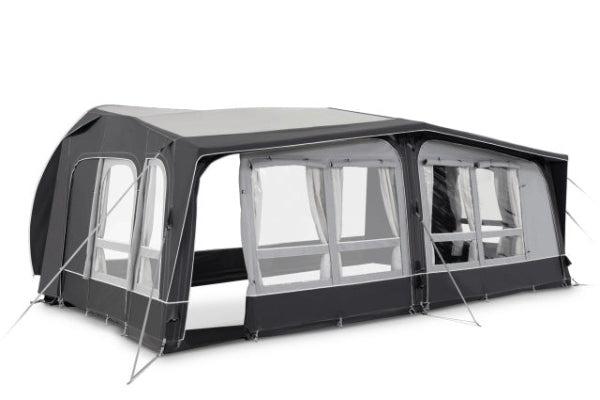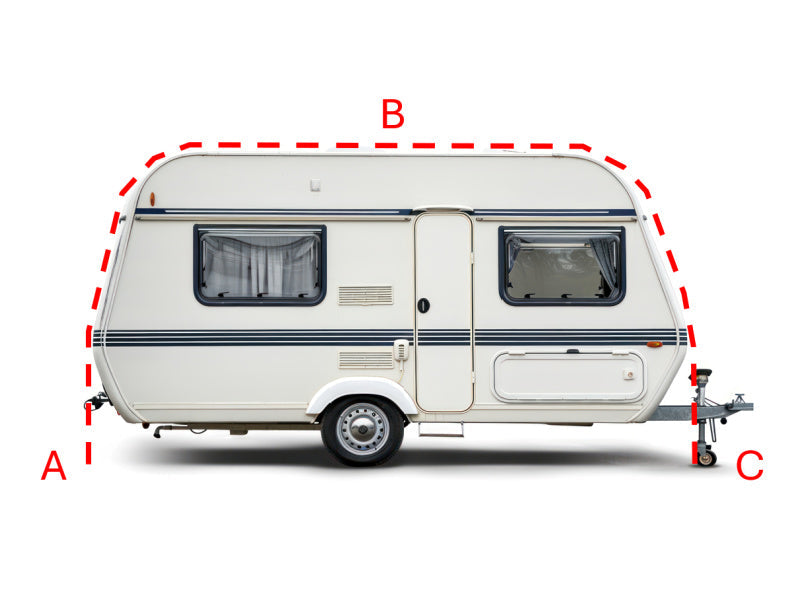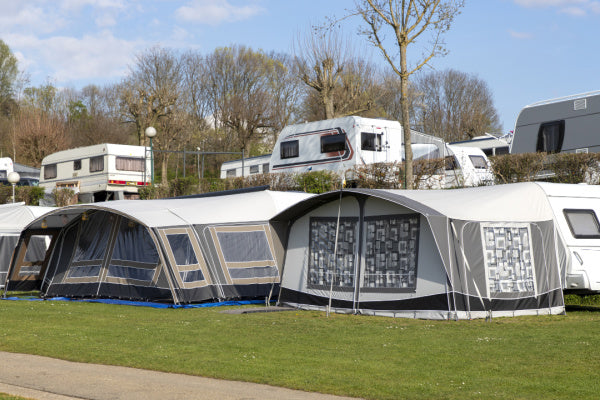Camper Refrigerator: Is a Regular Fridge an Option?
Sure, you can put a regular refrigerator in a camper—but it’s not always a plug-and-play dream. Between power demands, tight spaces, and bumpy roads, it’s a bit like forcing a couch into a tent. Stick around to learn when Camping Refrigerators make more sense (and how to avoid meltdown—literally).
The Allure and the Obstacles: Using a Household Fridge in Your RV
Why Consider a Regular Fridge? The Potential Upsides
The idea of using a household fridge in your campervan is tempting. You already own it, it’s roomy, and it probably looks nicer than the smaller, boxy alternatives.
But there’s more to the story.
Let’s look at the real benefits—and what might get in the way.

Cost Savings: Comparing Purchase Prices (Residential vs. RV-Specific)
Regular household fridges are cheaper and easier to find than specialised camper models. For budget-conscious travellers, that’s a win.
However, the savings can be offset by the cost of extra power setup, ventilation, and mounting work.
More Space & Features: Larger Capacity and Modern Conveniences
Household fridges offer more space—often 100–200 litres—and added features like adjustable shelving and digital controls.
That means more room for fresh food and drinks on longer trips, especially if you’re not a fan of constant restocking.
Potentially Better Cooling Performance and Temperature Consistency
Fridges made for homes tend to cool more consistently, especially in warm weather.
They’re designed to maintain low temperatures in a stable environment, which can benefit food longevity—at least when power isn’t a concern.
Key Differences: Why Aren't All Fridges Camper-Ready?
Even with the perks, there are several reasons most people still opt for camper-specific fridges.
Power Source Mismatch: 120V AC (Residential) vs. 12V DC/Propane (RV)
Household fridges run on mains electricity (usually 230V AC in the UK). This works fine when you’re plugged into shore power or using a generator.
But when you’re off-grid, your fridge will need an inverter—preferably a pure sine wave one—and a large battery bank to stay running.
Durability & Design: Built for Stationary Homes, Not Bumpy Roads
Standard fridges aren’t made to bounce around. Vibrations and tilting can damage internal components or affect performance.
In contrast, camper fridges are built with stronger internals and can function at odd angles.

Ventilation Requirements and Size/Fitment Challenges in an RV
Residential fridges need ample ventilation to avoid overheating. Without it, they struggle to stay efficient.
They also tend to be wider, deeper, and heavier—making them harder to fit into camper layouts without serious modification.
The Big Question: Powering a Residential Fridge on the Go
The biggest challenge is energy. A standard fridge might only use 100–200 watts while running, but it draws more on startup.
If your camper’s power setup isn’t ready, your fridge might drain your system faster than expected.
The Need for an Inverter (Pure Sine Wave Recommended)
To power a standard fridge on 12V batteries, you’ll need an inverter. Not just any inverter—a pure sine wave one ensures clean, safe power.
Modified sine wave inverters can cause overheating or inefficiency.
Battery Bank Capacity: Can Your System Handle the Load?
Battery capacity is critical. A small battery setup won’t last long with a fridge running all day.
Even efficient models will test your reserves if you aren’t plugged in regularly.
Solar Power Considerations for Off-Grid Use
Solar is a great option for topping up batteries. But you’ll need a panel setup large enough to handle both your fridge and other essentials.
Cloudy days or winter sun can limit how reliable solar is alone.
Generator Use and Shore Power Reliance
A generator can fill in the gaps, but it’s noisy, fuel-reliant, and not ideal for remote spots. Shore power is great—when it’s available.
So you’ll need a backup plan if you camp off-grid often.
Making it Work (or Deciding Against It): Practicalities & Considerations
Installation & Modification Challenges
Installing a home fridge in your camper takes more than a plug and go.
You’ll likely need to modify cabinets, add airflow vents, and secure it properly for travel.
Physical Fit: Measuring and Altering Cabinetry
Measure everything—twice. Household fridges are often too tall or deep for standard camper kitchen setups.
You may need to cut or rebuild parts of your cabinetry to make them fit.
Securing the Fridge for Travel (Preventing Movement and Door Opening)
A loose fridge can be dangerous. Use anti-vibration mats, floor brackets, and secure the door with catches or magnetic locks.
Also ensure the unit is level and bolted in place to avoid tipping.
Proper Ventilation for a Residential Unit in an Enclosed RV Space
Fridges need room to breathe. Make sure there’s good airflow around the unit.
Consider adding fans or heat vents near the coils to keep temperatures stable and prevent overworking the compressor.
Weighing the Pros Against the Cons for Your Camping Style
Whether a standard fridge is right for you depends on how and where you travel.
Let’s break down the key trade-offs.
Durability Concerns: Will it Withstand Road Vibrations Long-Term?
Even well-installed household fridges may wear out faster from shaking and jolting. Over time, they may fail due to travel strain.
Camper fridges are built with travel in mind and generally last longer in those conditions.

Energy Consumption Impact on Your Overall RV Power Management
A home fridge uses more power than most 12V options. This limits your time off-grid unless you have serious battery capacity or rely on generators.
Impact on RV Weight and Balance
Household fridges can weigh up to 75kg. That affects handling and may push you over safe or legal weight limits.
Weight distribution is also important—an unbalanced layout can affect driving performance.
When an RV-Specific Fridge (Compressor or Absorption) Still Makes More Sense
If you travel often, move campsites regularly, or camp off-grid, a proper camper fridge is still the best choice.
They’re built to handle movement, use less power, and integrate easily into your setup.
Other content you might like:
- What Can You Fit In A 4L Fridge?
- What Size Fridge Is In A Camper?
- Why Is My Camper Fridge Not Staying Cold?
- What Is The Best Camping Fridge?
- How Big Is A 6 Litre Mini Fridge?
- How Big Of A Battery Bank Do I Need To Run A Refrigerator?
- How Much Is A Camping Fridge
- Is A Camp Fridge Worth It?
- What Is The Most Efficient Camping Fridge
- What Type Of Fridge Is Best For A Camper?





Leave a comment